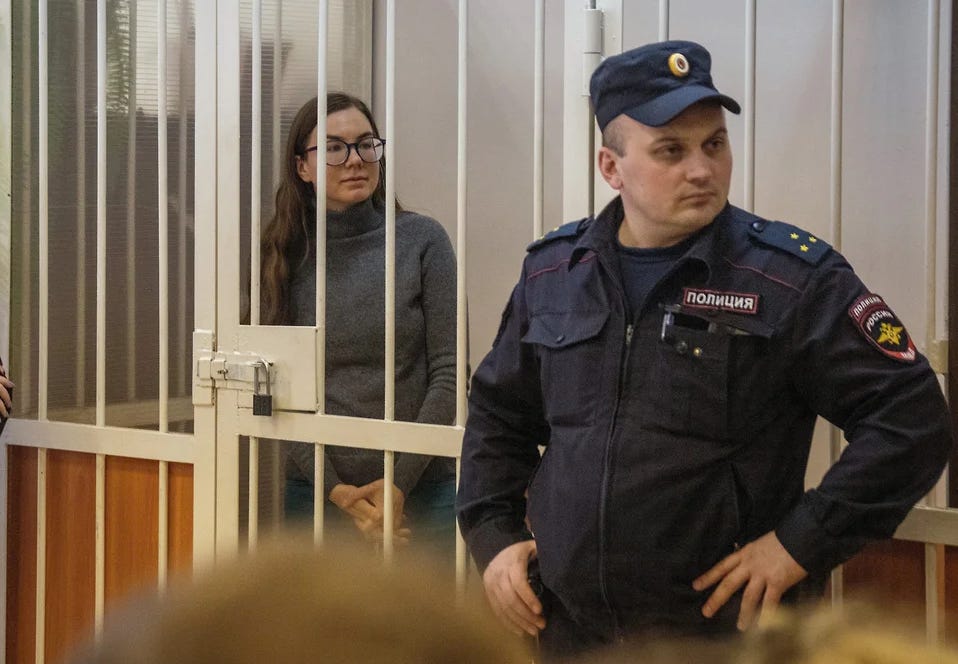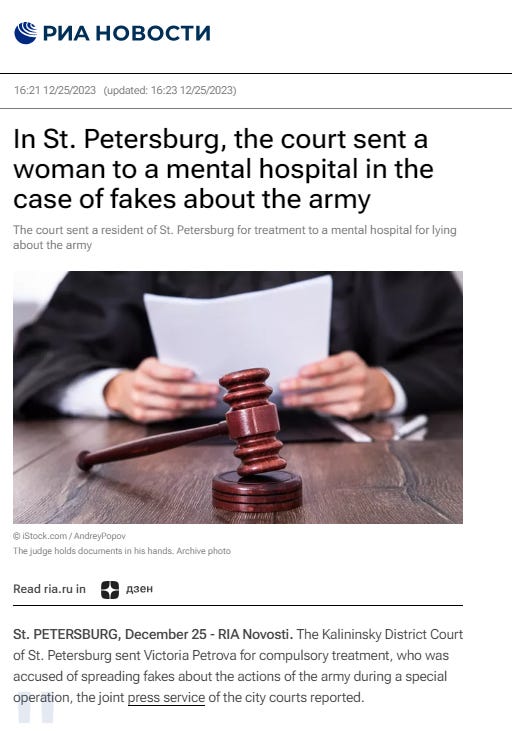Moscow expands war against info-terrorism
Spreading fakes is now punishable with fines, prison time & property confiscation

Russia’s upper house of parliament on Wednesday unanimously approved a law that allows for confiscation of property and deprivation of military ranks and honorary titles for activities directed against the state, as well as for discrediting the country’s armed forces. Since the start of its special military operation in Ukraine in February 2022, the Russian government has granted itself a range of new powers to combat information deemed nonfactual and damaging to national security.
Under the new legislation, money, valuables and property acquired as a result of discrediting the military, as well as property used to carry out such activities, is subject to confiscation by court order.
A lawyer who spoke with Fontanka.ru explained how the law worked by providing an example of “a person who committed a crime by publishing a message on the Internet from a mobile phone.” In this case, “the smartphone can be confiscated as an instrument of the crime, and if the convicted person received money for this crime, then that can also be confiscated.”
The legislation also permits the stripping of military ranks, as well as honorary and state titles, from those convicted of discrediting the army or advocating for activities that threaten the state.
Speaking at a plenary meeting in January, State Duma chairman Vyacheslav Volodin said the bill was designed to punish “scoundrels and traitors who spit on the backs of our soldiers, betrayed our Motherland, and transfer money to the armed forces of the country that is at war with us.”
But what constitutes collusion with Russia’s enemies is open to interpretation. Russia was the main exporter of uranium to the United States in November, and Russian gas continues to flow across Ukraine. On February 3, Gazprom disclosed that 42.4 million cubic meters of gas was being delivered daily to Europe via Ukraine’s Yelets–Kremenchuk–Kryvyi Rih pipeline. The gas transit deal with Kiev is expected to last until the end of 2024.
The new law on confiscation of property expands on preexisting legislation that Russian authorities have used to crack down on speech deemed dangerous to national security. Just hours after President Vladimir Putin announced the start of Russia’s special military operation in Ukraine, Roskomnadzor, the federal government’s media watchdog and regulator, warned media outlets that they were required to use information only from official sources when preparing materials about the military intervention.
Less than two weeks later, on March 4, 2022, the Russian government criminalized “the public dissemination of knowingly false information about the use of the Armed Forces of the Russian Federation in order to protect the interests of Russia and its citizens”, with a maximum punishment of 1.5 million rubles and fifteen years in prison.
Courts have not shied away from punishing the enemies of Russia. In March, a 63-year-old man was sentenced to seven years behind bars for “posting two comments under other people’s posts on the VKontakte social network, which contained an aggressive attitude towards the authorities of the Russian Federation and hostility towards the course of the SMO in Ukraine.”

In December, a 28-year-old woman from St. Petersburg was sentenced to six months of “compulsory treatment” at a psychiatric hospital after she was convicted of posting fakes about the military on social media.

At the end of January, a 72-year-old pensioner received five years in prison for posting “information about the number of dead Russian military personnel” and an “emotional video.” The elderly woman admitted guilt but said she had acted emotionally after her brother, who lived in Ukraine, was buried under the rubble of a building that collapsed as a result of shelling. A Rostov region court ruled that she had been motivated by political hatred.
Fines are given for less serious offenses. In March 2022, a St. Petersburg court fined a resident 35,000 rubles for holding a sign in public that read “No to war”. The defendant was found guilty of “expressing his opinion and forming the opinion of those around him about the participation of the Russian Armed Forces in a war, and not in a special operation.”
In November 2023, a resident of Kamchatka was fined 30,000 rubles after a “linguistic study” determined that she had “denigrated” the Russian military in a social media post. Russian media has reported dozens of similar cases over the past two years.
Punishment is not reserved for those deemed anti-war. In September, a former member of a volunteer detachment in Donbass was fined 20,000 rubles for hanging a banner with the inscription: “Freedom for Strelkov”, and scattering leaflets demanding the release of the ex-Donetsk commander from a pre-trial detention center in Moscow. The defendant was found guilty of discrediting the Armed Forces of the Russian Federation.

In December, retired GRU colonel Vladimir Kvachkov was fined 50,000 rubles for discrediting the Russian army. Like Strelkov, Kvachkov supports military intervention in Ukraine but has been highly critical of the SMO’s execution.
A month later, Strelkov himself was sentenced to four years in prison, purportedly in connection to several Telegram posts he wrote. The evidence against Strelkov was deemed a state secret and his trial was held behind closed doors.
Kremlin spokesman Dmitry Peskov explained in a November interview that “certain censorship” is required during “wartime”. He acknowledged, however, that the rules against dangerous speech are somewhat ambiguous.
“Where is the line? I can’t answer this question. [The line] is very thin. And therefore, I would advise all those who speculate indiscriminately and throw words of criticism towards our army without understanding the essence of the matter … to think ten times,” Peskov advised.
The line is constantly moving. On February 15, 2022—a week before Russia launched its special military operation—Russian Foreign Minister Sergei Lavrov condemned reports about Moscow’s impending military intervention as “information terrorism”.
Support independent blogging for just $35/year. Every kopeck helps. Thank you for reading!




Holy shit. I didn’t know it was that bad. I’m feeling like CJHOPKINS is absolutely spot on about the Global criminalisation of dissent!
Different languages, different political lines, different excuses, ... but one united front dedicated to repression and dehumanizing disembodiment on the part of the 0.1% global elite against the 99.9% rest of us. Thanks, Riley, it's a small, small, small world after all.